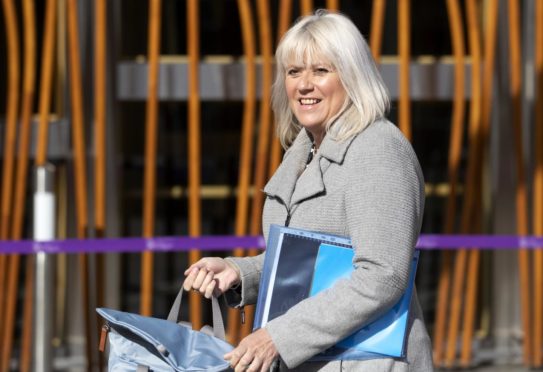Scotland has been subjected to “14 years of failure” in mental health provision and drug treatment services, resulting in the country having the highest rate of drug death in Europe, an MSP has said.
North East Labour politician Michael Marra said it was “difficult to see” where changes have been made in service provision in Dundee and Scotland, two years on from the publication of the Dundee Drugs Commission.
Scotland has the highest rate of drug death in the Western world, with 722 fatalities recorded in the first half of 2021 alone.
The figures for 2020, show a record high of 1,339 people died from drugs, 3.5 times higher than anywhere else in the UK.
Change needed
During a Holyrood debate on mental health care, Mr Marra said a full change was needed in the culture of management across NHS Scotland.
“This is 14 years of failure in service design, workforce planning, strategic oversight, resourcing and acute service delivery,” he said.
“Any success in tackling Scotland’s drug deaths epidemic will depend critically in tackling the wider seminal whose progress relies on the successful interaction of (mental health and drug) services.
“But this is dangerously far from reality.”
He added: “The rhetoric of person centred care is well worn, but it will remain rhetoric while the waiting list for services and case loads of workers render current services effectively non existent.”
Mr Marra said it is difficult to see where progress has been made.
“There has to be a change in the culture of management, which must happen now,” he said.
“I hear the minister’s comments on tests of change and small projects, but the real change will be the culture in management and it has to be led by the minister and I know she is committed to these issues.
“But frankly, delay and denial and endless discussion is still costing lives.”
Scottish Conservative drug spokeswoman Sue Webber welcomed moves to treat addiction and mental health provision together, but condemned government minister and Scottish Green co-leader Lorna Slater for her comments made last week on drugs being “not inherently dangerous”.
She said: “For a minister in this government that claims tackling the drugs death crisis is not a priority (is) extremely disappointing.”
“You cannot treat substance misuse in isolation, you must also treat the mental health issues so often at the root cause.
“And despite previous announcements and big promises made in this chamber, the reality on the ground is very different.
“We need to look at things that are working and also accept that things are not.
“The reality people must endure when pleading for services should shame us all.”
Investment made
Drug policy minister Angela Constance said a treatment service trialled in Dundee will be introduced across four other health boards, including Grampian.
She said: “The link between poor mental health and drug problems is clear.
“More than 90% of those at risk of dying from a drugs related death will have experience anxiety, and or depression.”
She added: “Taking a person centred approach means there must be no ‘wrong door’ for people as they seek help.
“Change has to be informed by those who understand the system most.
“In Dundee, Health Care Improvement Scotland is already helping develop an integrated model of care across mental health and substance use services…firmly based on the experiences of those with lived experiences.
“Plans are in place to expand this work in four health areas, backed by government investment of £2.2 million in Lanarkshire, Greater Glasgow and Clyde, Grampian and Lothian health board areas.”
How they voted
Members backed the Scottish Government following the debate, but opposition MSPs warned not enough was being done still to target the issue.
Holyrood unanimously agreed the Government motion which stressed the importance of “ensuring a person-centred approach to supporting those with substance use and mental health needs”.
A Conservative amendment, which had called for a legal right to recovery to be introduced to help “tackle Scotland’s ongoing drug deaths crisis”, was defeated by 29 votes to 65 with 20 abstentions.
Labour’s amendment on the importance of tackling the “underlying drivers” of drug use and “regrets that mental health services have been under-resourced for too long”, resulting in “unacceptable waiting times” for treatment, was then rejected by 49 votes to 65.



